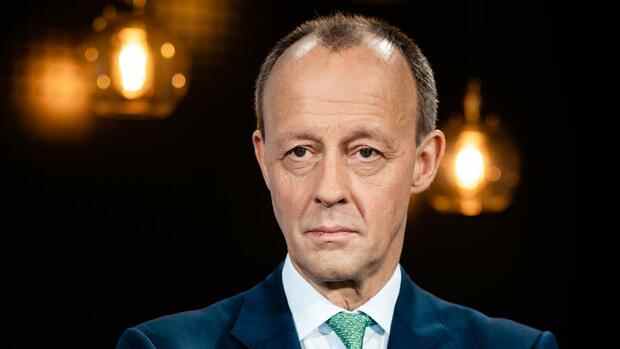Each group will be headed by a member of the executive committee, plus ten party members and five experts for the respective topic, as well as two interested parties who are not members. The demand is huge: several thousand members and non-members are said to have applied. The lot decides.
A basic values commission has already met and is due to submit three to five pages by May, which will serve as a preamble to the new basic programme.
Top jobs of the day
Find the best jobs now and
be notified by email.
However, the structure is only one thing. In terms of content, Merz has already set the first priorities this week. In the shadow of the Ukraine war, he appeared in his home town of Hüsten in Sauerland, where he outlined his ideas for a new CDU.
On the one hand, the social market economy is to be “redefined” in times of climate change. This is intended to be “an essential part of our program work”. He is concerned with price mechanisms that sanction resource consumption and competition that rewards innovation.
“A special chapter in the basic program”
Skeptically eyed by social politicians, the economic liberal gave them an offensive hand: “There is one last big promise that this policy of the Christian Democratic Union has not kept to this day: the participation of employees in the productive capital of our economy,” Merz said in front of around 50 guests and made it clear that the Commission would “pay very special attention to this section”.
Not every citizen has to become an entrepreneur, and not every employee has to be involved in his boss’s company. What is necessary, however, is “that there is a mechanism by which the employees can participate appropriately in the growth of our economy beyond the mere wage-setting mechanisms,” Merz said. And added: “Let’s put it like it is: the financial crisis since 2009 and the corona crisis in 2020 have not reduced social inequalities, but increased them.”
Merz sees this as “an open flank” of the social market economy. This is why this should be “a special chapter in the basic programme”.
Merz did not want to be more specific, but there are hints in his most recent book. In addition to the statutory pension scheme, it also mentions the obligation for companies to provide for company pension schemes and also to share savings across generations. During the election campaign there was even talk of “pensions from birth”.
The father of three and grandfather of five calls generational justice the “new social issue”. In the mid-1970s, faced with high unemployment, Heiner Geißler raised the question for the first time, when Merz was a young member of the CDU. In 1978 the party decided on the first basic program with which Helmut Kohl formed the party into a movement. Two more followed, all with the term “freedom” in the title at the beginning.
“Embody the modern as well as the social”
Merz seems to want to build on all of this. He is convinced “that parties need members”. The CDU should again be a “representative cross-section of society” and reflect the entire breadth of the professional spectrum”.
It should integrate as a people’s party and solve conflicts, which “will result in a majority opinion of our party, which we will only then put into the discussion of political competition”. This is “the actual strategic task of the ‘U’ in our party name,” he said. “The People’s Party principle is not dead.”
Merz also wants to emphasize the “C”, even if it is not easy given the crisis in the Catholic Church to which he belongs. He wants “to leave no doubt that we will continue to be called the Christian Democratic Union in the future. These are long cultural lines that we want to draw from the past through the present to the future.”
The Saarlander Tobias Hans should also play his role there, embodying the modern as well as the social, since the Saar CDU is firmly anchored in the church and the trade unions. A win would be important for Merz, as the election is the first mood test in his time as chairman in view of the May elections in Schleswig-Holstein and in his state of North Rhine-Westphalia. “Now we have to get to work and review our offer,” he said in Hüsten, describing the task of the new party leadership and immediately defined the goal: the Union should become “the determining force” again.
More: Clear edge to the right, support for the left: How does Merz feel about the political fringes?
